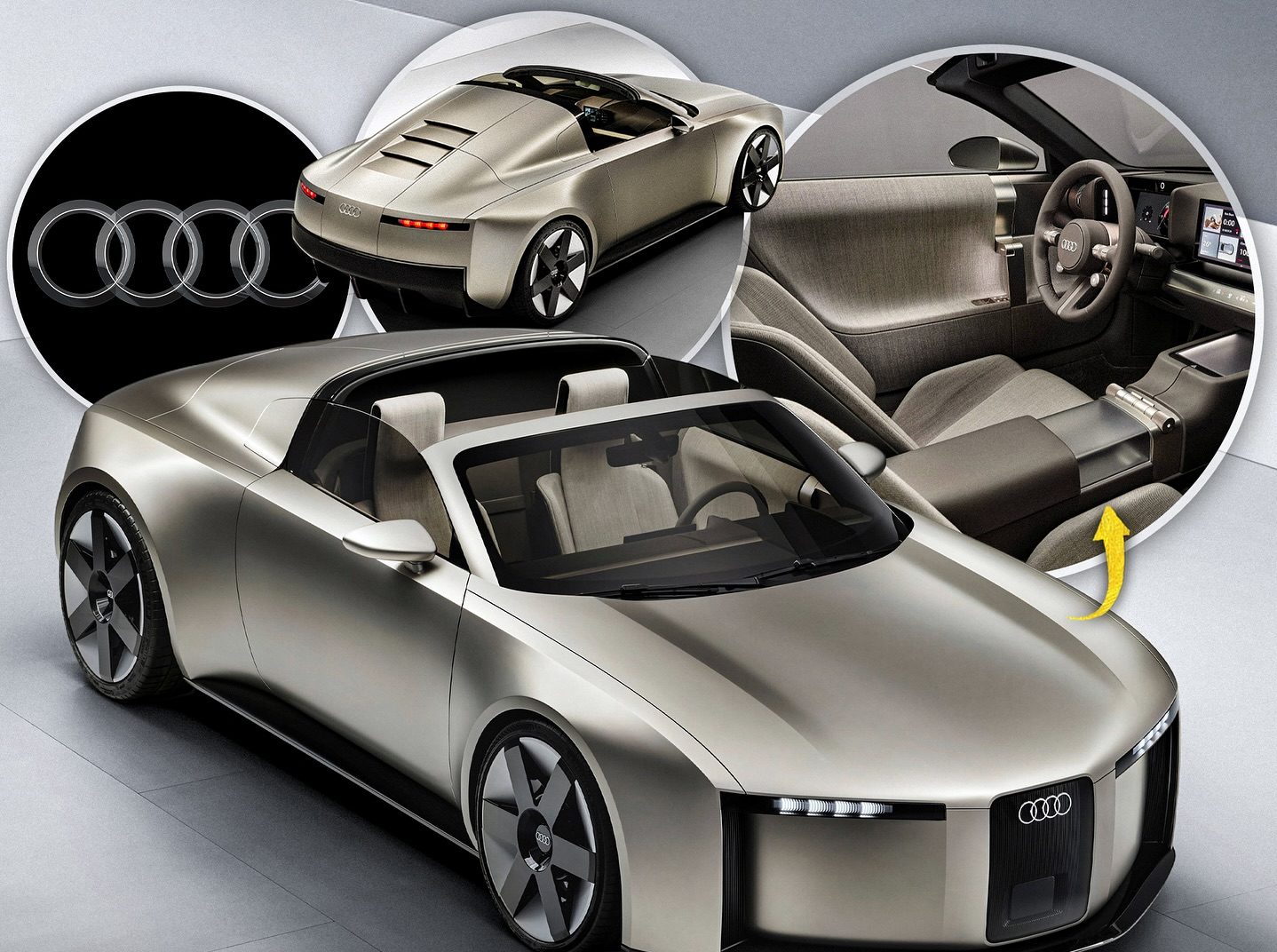Audi Unveils Its TT Successor, a Stunning Two-Seat Electric Sports Car Coming in 2027 That Balances Style, Power, and Price
The world of cars is changing faster than ever, but one thing hasn’t changed: the desire for a true sports car. Something compact, stylish, and built not just to take you from point A to point B, but to make the journey unforgettable. For years, Audi filled that space with the TT and, for those who could afford it, the R8. But as both icons were retired, fans of the brand were left wondering whether Audi was quietly stepping away from sports cars altogether. Now, that question finally has an answer, and it’s one that has reignited excitement everywhere.
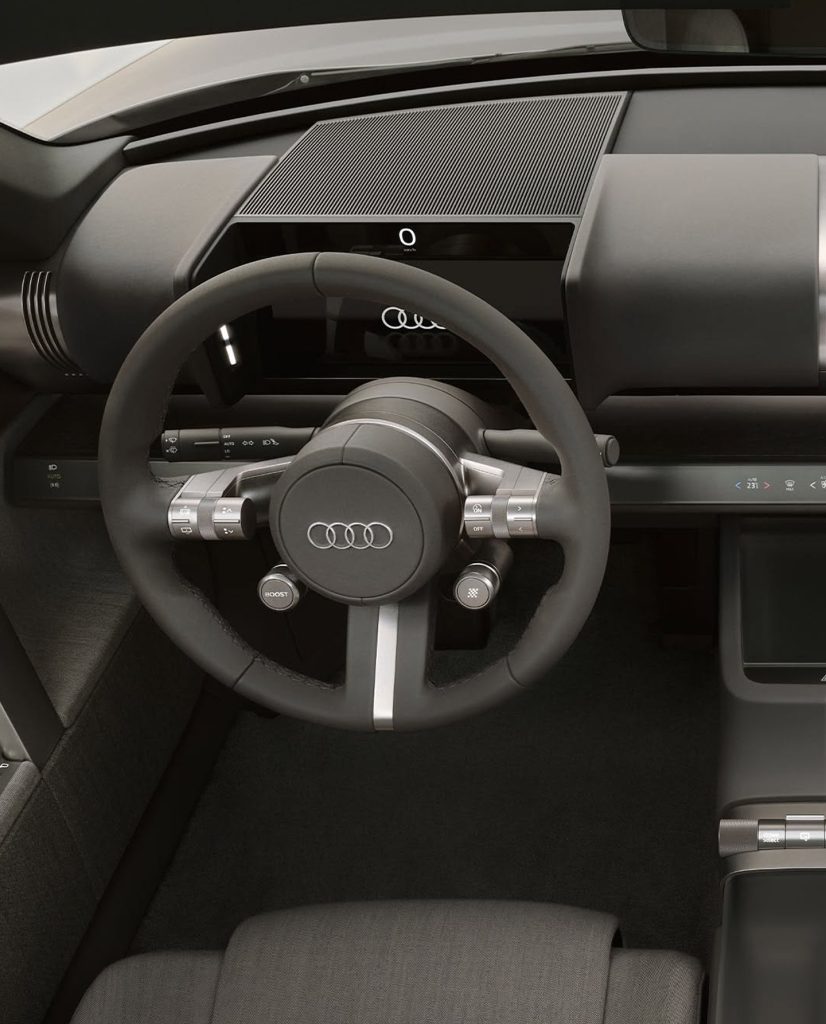
Audi has just unveiled the Concept C, an all-electric two-seater that’s being positioned as the spiritual successor to the beloved TT. Production is confirmed for 2027, which means this isn’t just a futuristic dream—it’s a real car that will soon be rolling onto roads. For anyone who fell in love with the TT’s distinctive look or admired the R8’s supercar edge, the Concept C feels like Audi’s promise that the thrill of driving isn’t going anywhere.
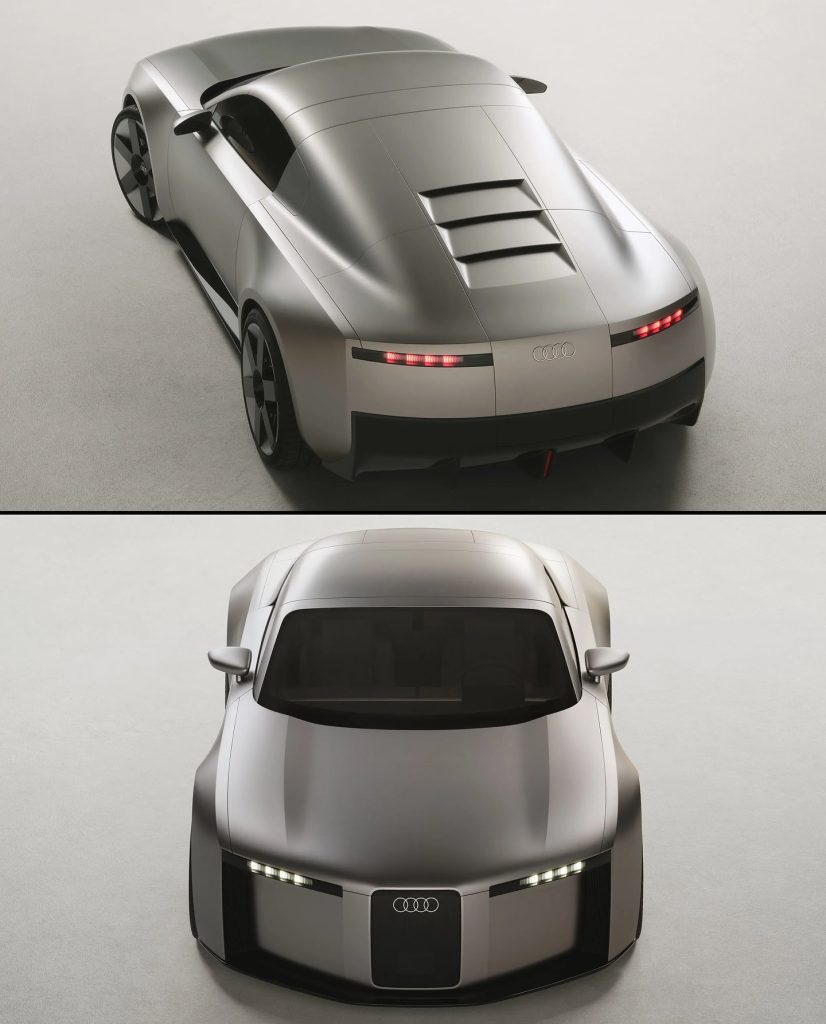
The design alone makes a statement. At first glance, the car looks aggressive yet elegant, futuristic yet familiar. It strips away unnecessary frills, replacing them with smooth surfaces, sharp lines, and aerodynamic intent. Being fully electric, it doesn’t need the traditional grille of combustion models, giving it a clean face with narrow LED headlights that look like they’re staring straight into tomorrow. The interior is just as focused: minimalist, driver-oriented, and luxurious in a way that doesn’t distract from the experience of being behind the wheel. It’s everything a sports car cabin should be—tight, immersive, and made for people who love driving.
The TT was always celebrated for being stylish yet attainable. It was never the fastest or the most powerful sports car, but it struck a balance between design and performance that made it iconic. With the Concept C, Audi is promising to do the same, only with electric power. Positioned between the TT and the R8 in both price and performance, this new two-seater is aimed directly at drivers who want excitement without the unreachable price tag of a supercar. For many, it might just be the sweet spot Audi has been missing in recent years.
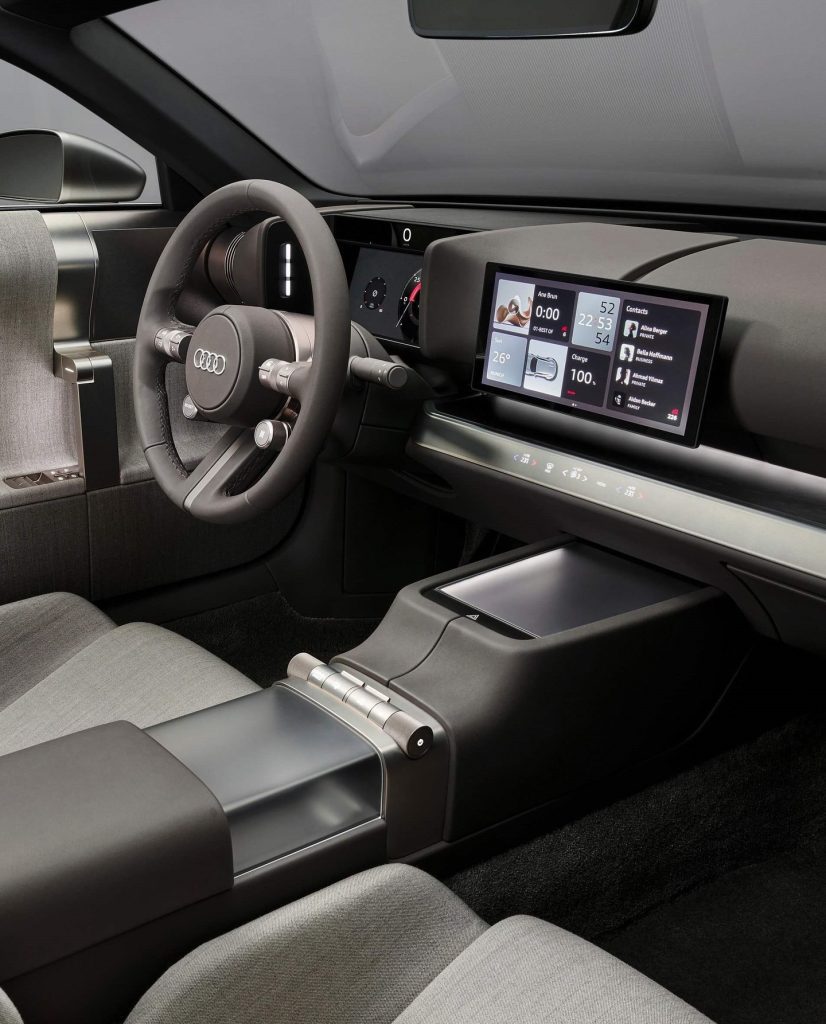
The move to electric power naturally raises questions. For decades, the charm of a sports car came with the roar of an engine, the growl of an exhaust, and the mechanical feel of shifting gears. Can a silent EV really capture the same magic? Audi seems confident it can. The Concept C is expected to deliver instant torque, razor-sharp handling, and acceleration that only electric motors can provide. Instead of waiting for revs to build or turbos to spool, power will arrive the moment you press the pedal. It’s a different kind of thrill, quieter but in some ways even more intense.
This car isn’t being positioned as an everyday family hauler. With only two seats, it’s a clear statement of purpose: a machine built for the joy of driving. It’s about weekends on winding roads, late-night city drives, and those moments when you want to escape the routine and feel something alive in your hands. And in a market increasingly dominated by SUVs and crossovers, Audi’s decision to double down on a driver’s car feels almost rebellious.
Price is one of the most intriguing parts of the story. Audi has said the new car will sit between the outgoing TT and the R8. While no numbers are official yet, that suggests something significantly more accessible than the six-figure R8, yet more premium than the TT. In other words, Audi wants this to be a sports car that feels special but isn’t out of reach for serious enthusiasts. That balance could be exactly what the brand needs to capture both attention and loyalty in the EV era.
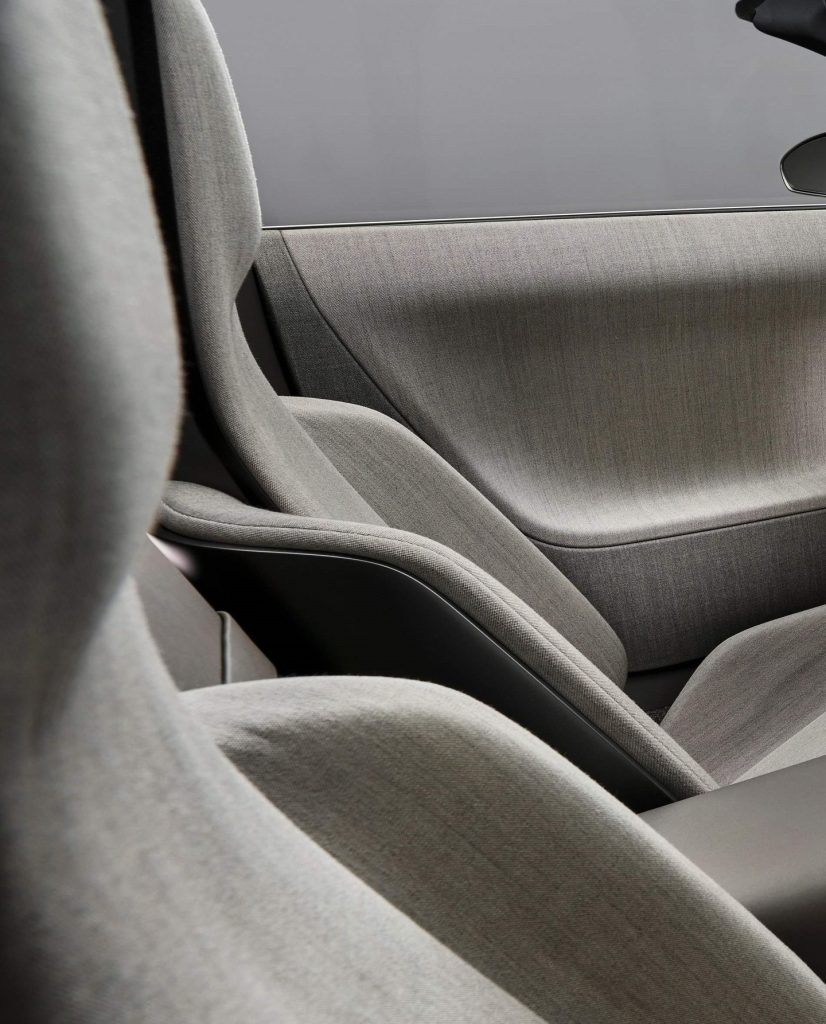
Production is locked for 2027, which might sound far off but is remarkably close in car development terms. Between now and then, Audi will refine the design, finalize performance specs, and prepare for launch. But the key message is already clear: Audi believes in the future of sports cars, and it’s ready to prove that electricity doesn’t mean the end of fun.
It’s also a statement about Audi’s identity. The company could have simply doubled down on electric SUVs, chasing profit in the safest, most predictable corner of the market. Instead, it chose to invest in a niche product, one that carries more emotional weight than practical logic. That decision says something powerful about Audi’s commitment to passion and heritage. Cars like the TT and R8 weren’t just transportation—they were aspirational symbols. The Concept C is being built to carry that torch.
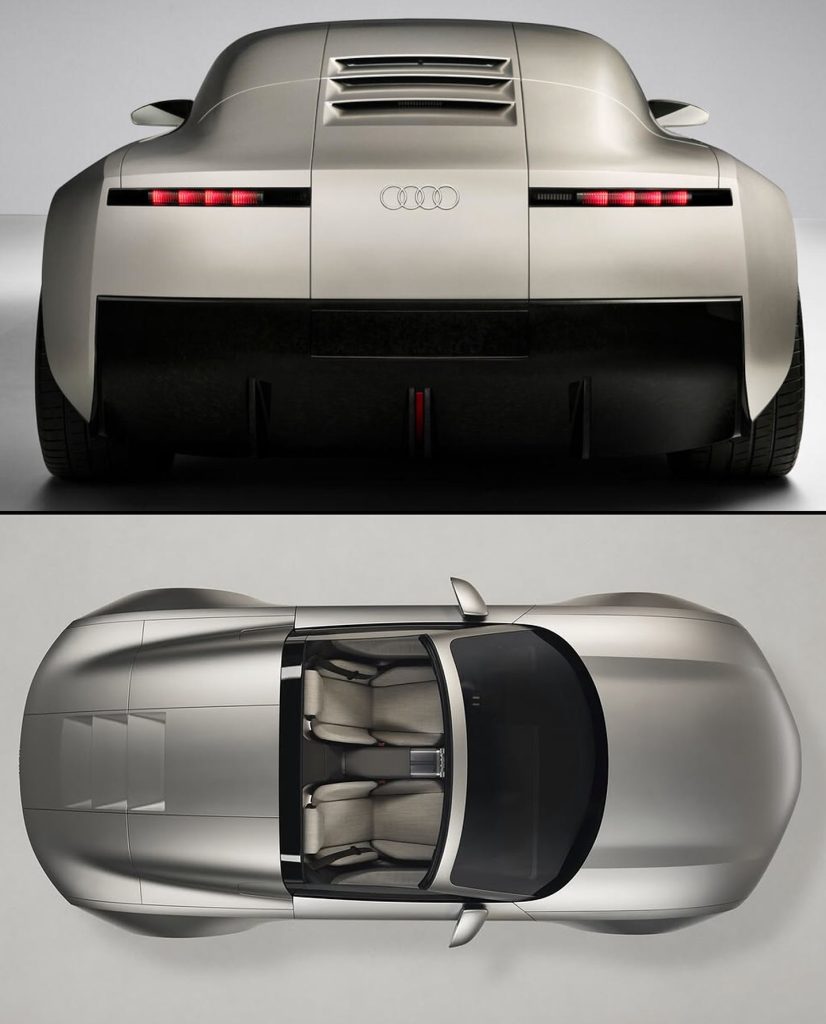
For longtime fans, the emotional connection runs deep. The TT wasn’t just a car—it was a cultural moment. Its rounded design in the late 1990s looked like nothing else on the road, and it instantly became a design icon. The R8, meanwhile, put Audi on the supercar map, proving it could compete with the likes of Ferrari and Lamborghini. By blending these two legacies—the accessibility of the TT and the flair of the R8—Audi’s new sports car is stepping into big shoes. But the enthusiasm it’s already generating suggests it might just pull it off.
Looking ahead, the Concept C also represents a bigger shift in the industry. Sports cars have been under pressure for years, squeezed out by regulations, changing tastes, and the rise of electrification. Many feared they might become relics, remembered fondly but no longer produced. Audi’s announcement challenges that fear. It proves that even in a world of EVs, there’s still space for cars built purely for joy. And that message resonates far beyond Audi fans—it’s a reminder to all car lovers that passion is still alive in the industry.
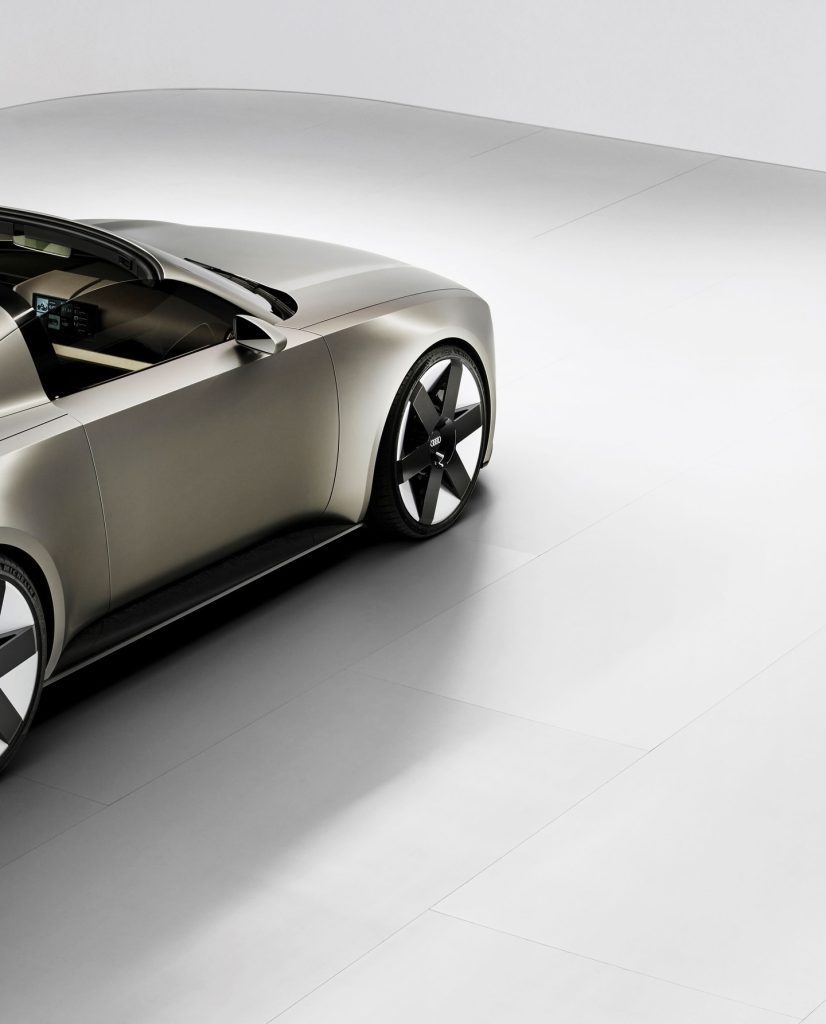
By 2027, when the first production models hit the road, the landscape of cars will look very different from today. More brands will have gone electric, more countries will have tightened emissions rules, and buyers will be adjusting to a world where the growl of engines is increasingly rare. Against that backdrop, Audi’s two-seat sports car could stand out even more, not just as a machine but as a statement of identity.
In the end, the Concept C isn’t only about specs or performance numbers—it’s about the feeling it promises. It’s about sitting low to the ground, holding a steering wheel designed for precision, and knowing that the car beneath you was built for moments of freedom. Audi has always understood that connection, and with this new car, it’s showing that the connection doesn’t have to disappear with the end of gasoline engines. It can evolve, transform, and maybe even become stronger.
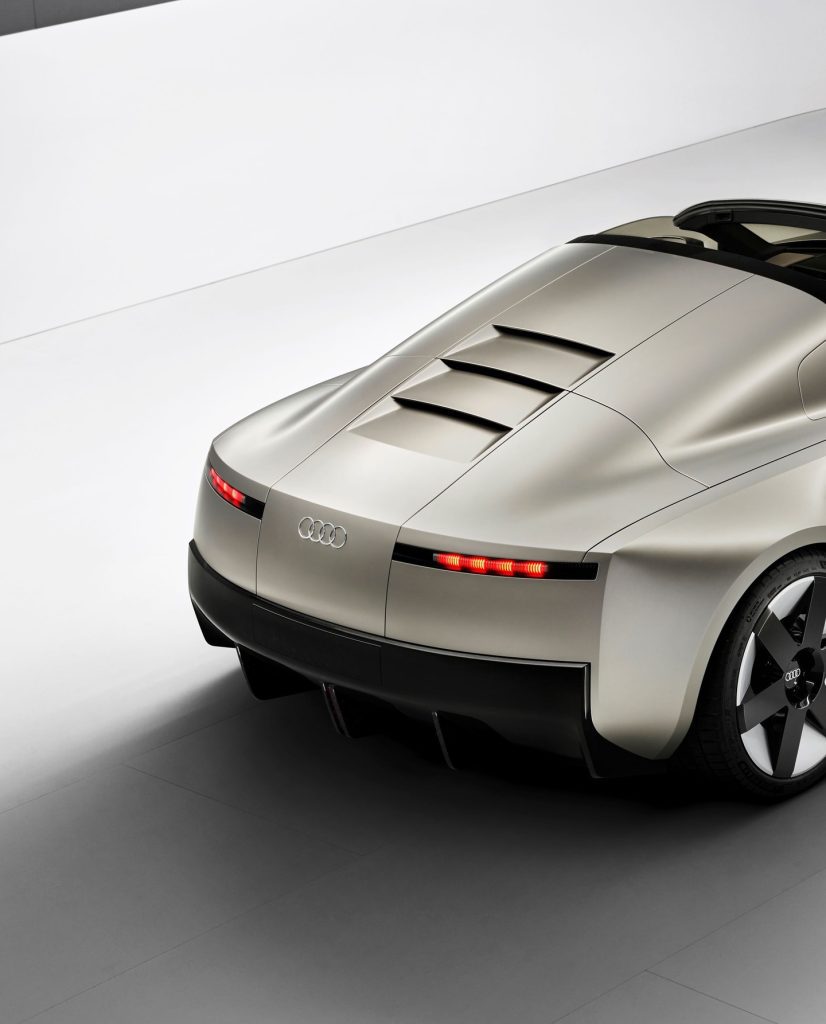
So while the world waits until 2027, the message is already here: Audi isn’t giving up on sports cars. The TT may be gone, the R8 may be on its way out, but the spirit lives on in a new shape, powered by electricity, ready for the next generation of drivers.

